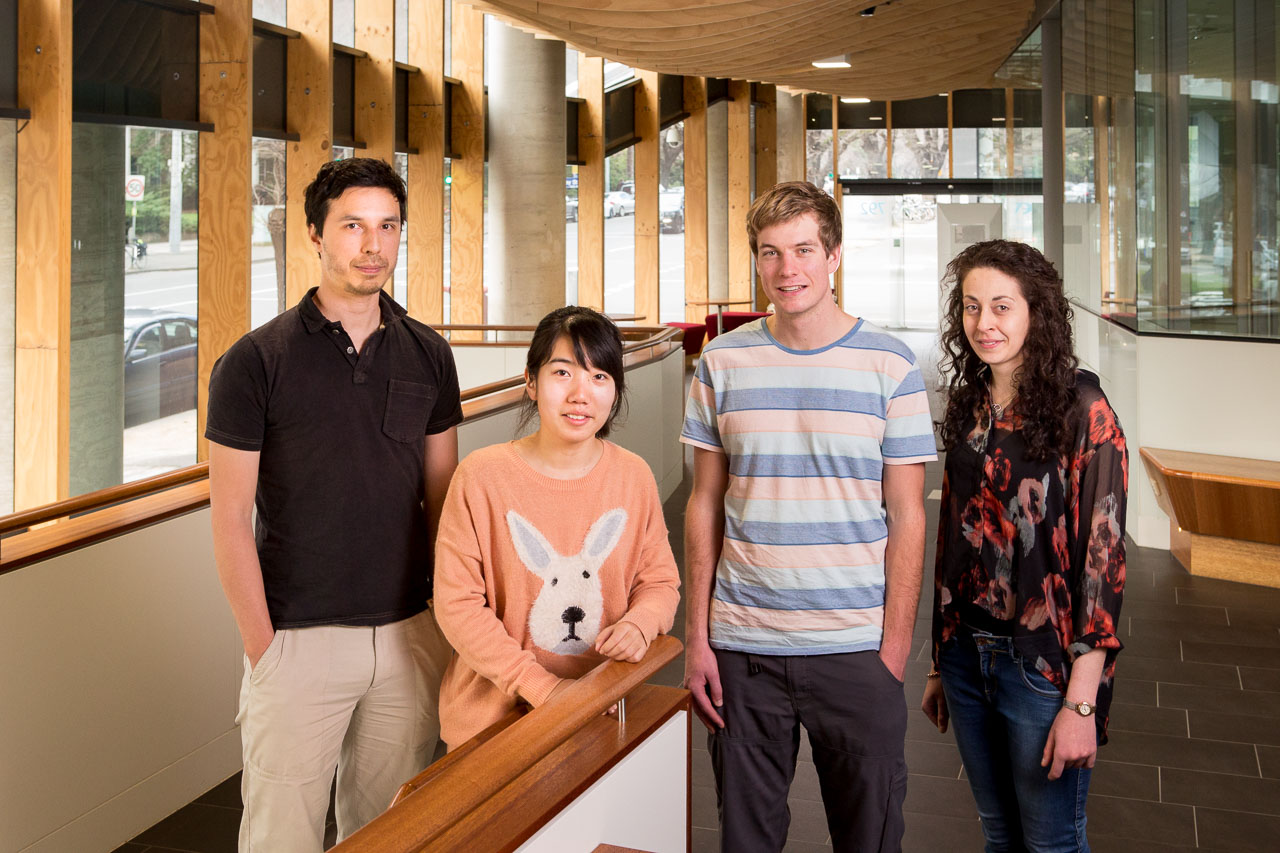Our Work | Institute Themes | Viral Infectious Diseases | Influenza
Influenza|Research
-
Research Groups
Clinical Research
-
Wakim Group
Linda’s group’s main research focus is understating the mechanism of action and regulation of expression of antiviral proteins. Linda’s group also aims to characterise CD8 T cell responses within the lung following virus infection.
Other work areas include:Immunology
Current Projects
-
Investigating the Mechanism of Action of the Antiviral Molecule, IFITM3
Cells of the immune system, due to the nature of their job, often find themselves at sites of active virus infection. Immune cells up-regulate the expression of an array of molecules upon entry into an inflamed/infected tissue and these molecules help render them resistant to infection. One such molecule, IFITM3, is a potent antiviral protein having the capacity to render cells resistant to influenza virus. To date, the precise antiviral mechanism(s) of IFITM3 is unknown. We are currently investigating the mechanism of action and regulation of expression of IFITM3.
-
Memory T Cell Responses in the Lung During Virus Infection
Many viruses enter the body by inhalation and initiate their replication cycle within the lung. The early stage of infection, while the virus is confined to the lung, provides the ideal window of opportunity for an effective immune response. Tissue-resident memory (Trm) CD8 T cells reside in the lung and are ideally situated to act during this window and stall the infection. Strategies that generate Trm within the lung hold significant therapeutic potential. Linda’s group are currently investigating Trm within the lung, identifying factors important in their differentiation and longevity.
Lab Team

-
Jeffery SmithResearch Assistant
-
James BedfordTechnical Assistant
-
Brown Group
Lorena’s group is dedicated to understanding different aspects of influenza virus structure and replication, as well as the host immune response to the virus that may impact on disease outcome. They study areas of vulnerability that can be targeted by vaccines and therapeutics to control seasonal and highly pathogenic isolates.
-
Deng Group
While her team’s core task has always been on the molecular surveillance of influenza viruses and its methodology development, Yi-Mo’s group have been collaborating actively both within and outside the Centre on several research projects relating to the molecular characterisation and evolution of human or animal influenza viruses.
-
Hurt Group
Aeron’s research team at the WHO Collaborating Centre for Reference and Research on Influenza works on aspects of understanding the replication and transmission of drug resistant influenza viruses, characterising novel drug resistance mutations, and the global movement and evolution of human and avian influenza viruses.
-
Kedzierska Group
Professor Katherine Kedzierska’s team researches the immunity to viral infections, especially the newly emerged influenza viruses. Her work spans basic research – from mouse experiments to human immunity, through to clinical settings, with a particular focus on understanding universal CD8+ T cell immunity to influenza viruses. Her studies aim to identify key correlates of severe and fatal influenza disease in high-risk groups including children, the elderly and Indigenous Australians.
Other work areas include:COVID-19, Immunology, Viral Infectious Diseases
-
Kent Group
Stephen’s group studies immunity to HIV, influenza and SARS-CoV-2. They are analysing a variety of vaccine strategies, including nanoparticle-based vaccines. They are studying a series of immune responses to gain better insights into protective immunity to important viral pathogens. They are developing monoclonal antibody therapies for HIV, influenza and SARS-CoV-2 to improve the treatment of these infections. The Kent group works very closely with Dr Amy Chung’s laboratory at the Doherty Institute.
Other work areas include:COVID-19, Immunology, HIV
-
Reading Group
Patrick’s group investigates how the body first detects and responds to respiratory viruses. They investigate viral attachment factors, cellular receptors and entry pathways, virus-induced activation of host genes and the mechanisms by which intracellular host proteins can block virus replication.
Other work areas include:COVID-19, Immunology, Viral Infectious Diseases
-
Sullivan Group
Sheena’s epidemiology group at the WHO Collaborating Centre for Reference and Research on Influenza undertakes research into understanding influenza vaccine effectiveness and the validity of the methods used to estimate it. The group also provides technical assistance to partners in the Western Pacific Region of the WHO.
Other work areas include:COVID-19, Immunology, Viral Infectious Diseases
-
Valkenburg Lab
The Valkenburg laboratory investigates viral immunity to emerging viruses with pandemic potential: influenza viruses and SARS-CoV-2. Our work spans randomised control vaccine trials, observational studies of infected patients and animal models to decipher immune correlates to drive novel translational outcomes for specific diagnostics, targeted therapeutics and next generation vaccines for public health impact.
Other work areas include:COVID-19, Immunology, Viral Infectious Diseases, Public Health
Anyone can be infected by influenza, but some people are more susceptible to infection, severe disease and clinical complications. Clinical studies at the Doherty Institute are focused on specific risk groups, seeking to understand characteristics of viruses and the immune system that result in increased susceptibility and clinical severity. In particular, current studies are considering:
- Young children and the elderly in collaboration with Deepdene Surgery
- Indigenous Australians in collaboration with Griffith University, Queensland
- High-risk groups of hospitalised patients in collaboration with the FluCAN network and Shanghai Public Clinical Hospital
Doherty Institute researchers are also characterising immune responses to influenza vaccination or infection in various groups of people, including:
- Health care workers in collaboration with the Peter MacCallum Cancer Centre
- Patients undergoing renal transplantations in collaboration with Monash Health
- Infants in the first year of life in collaboration with Oxford University Clinical Research Unit, Ho Chi Minh City, Vietnam.
Now recruiting volunteers
There are currently no Now recruiting volunteers
Current projects
-
Influenza
How do cross-reactive memory B cells affect influenza vaccine titers?
-
Influenza
LIFT: Investigating T cell immunity to influenza in Indigenous populations
-
Influenza
Understanding immunity to influenza viruses in patients hospitalised with severe and fatal disease
-
5-10% of adults &
20-30% of children worldwide
get the flu each year









